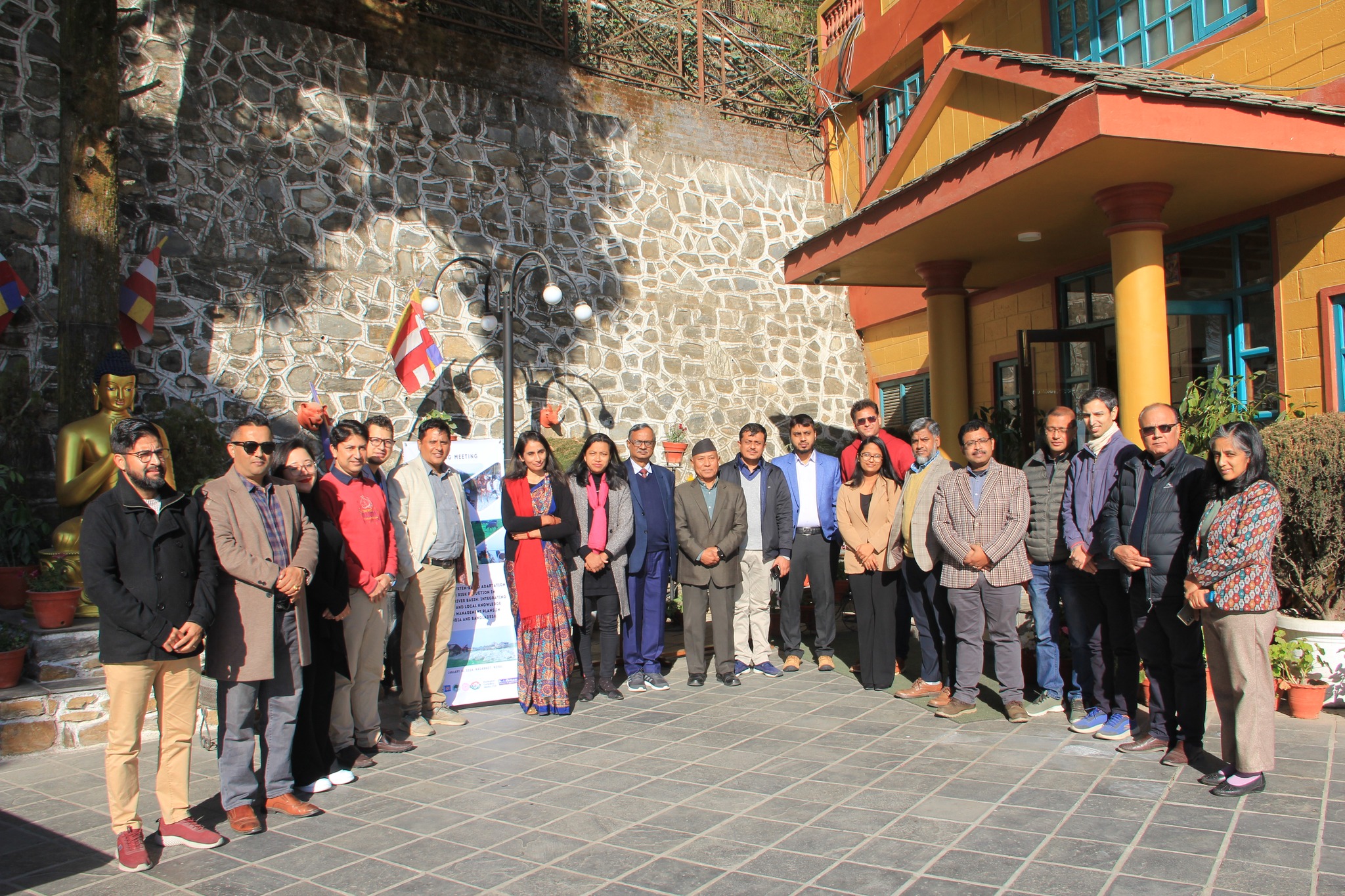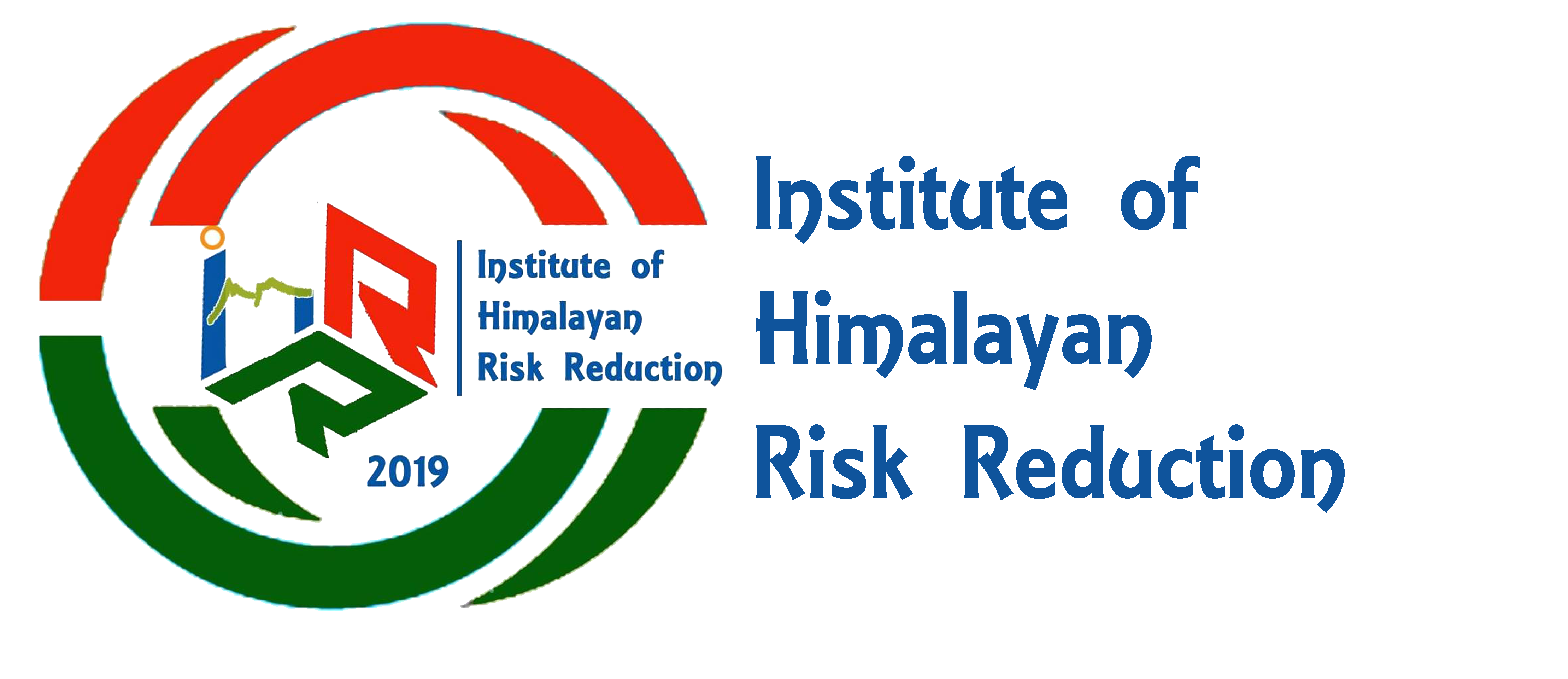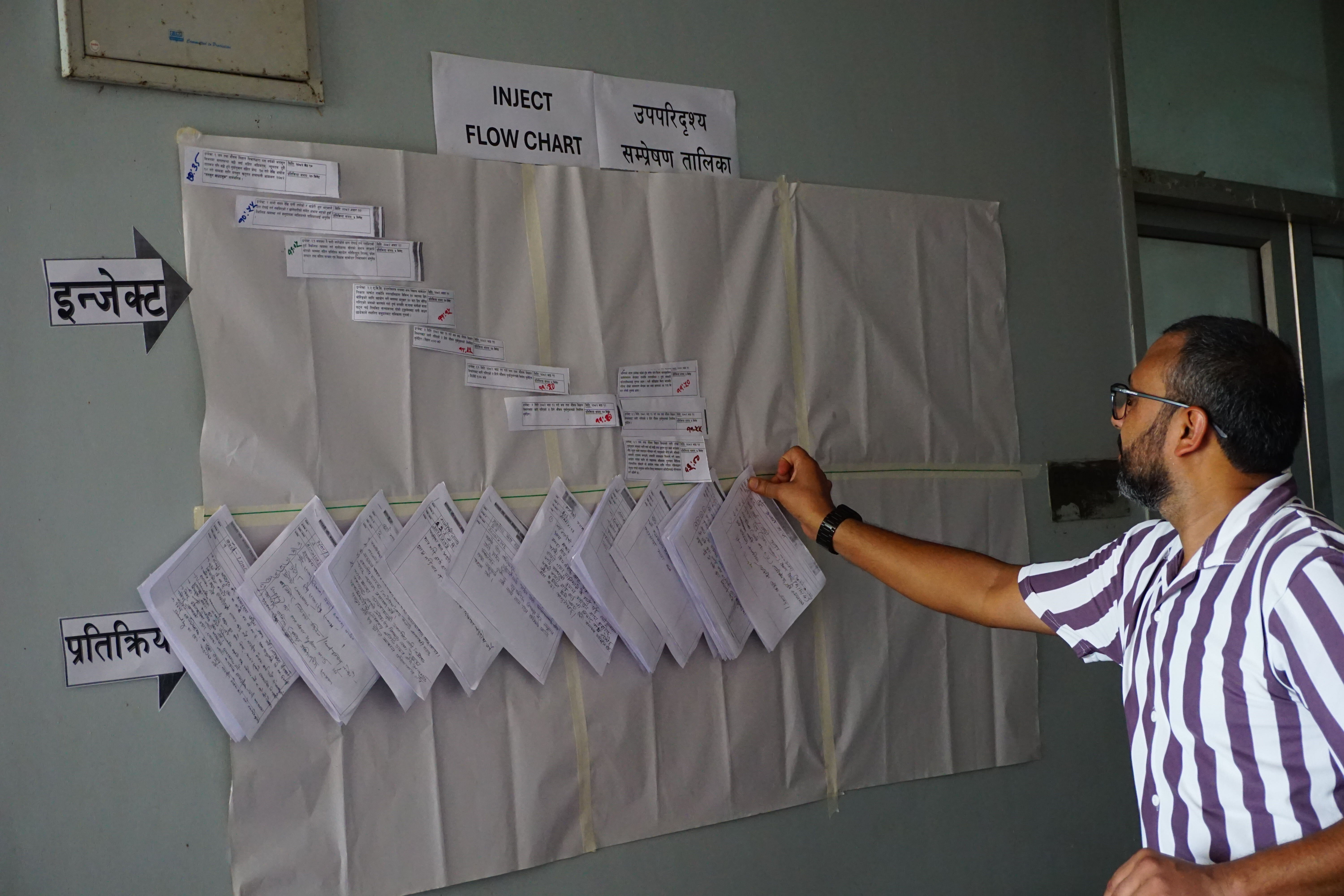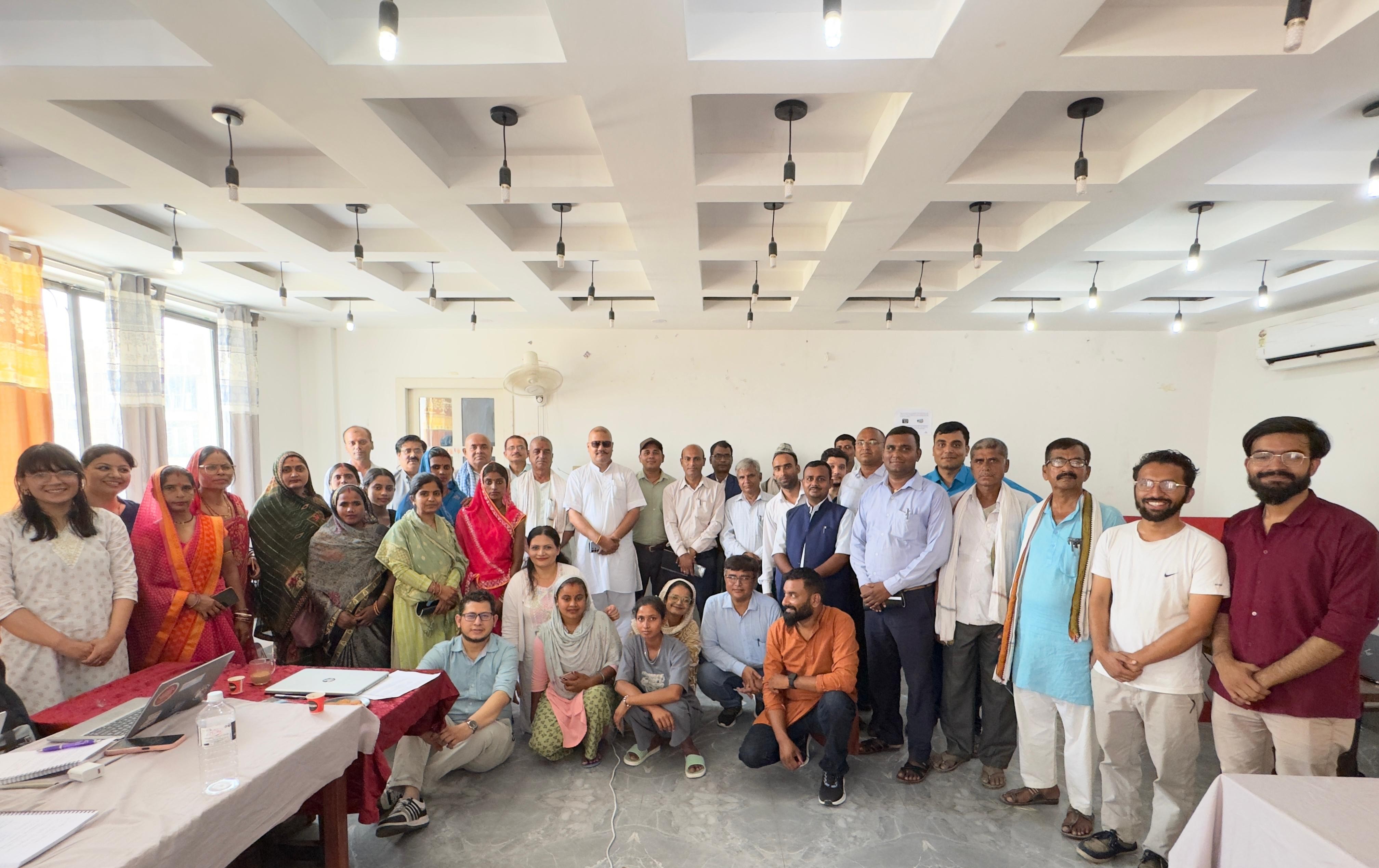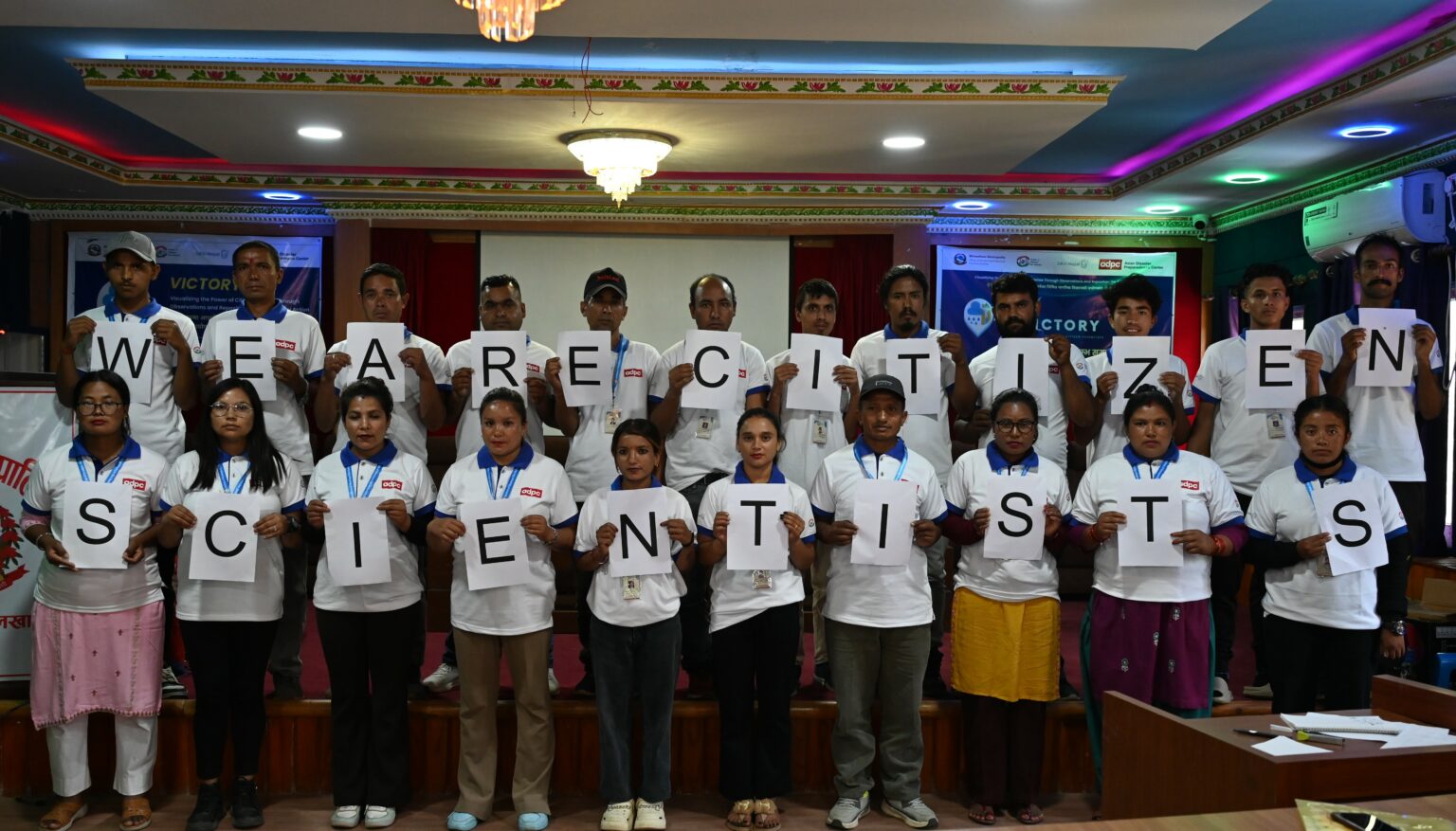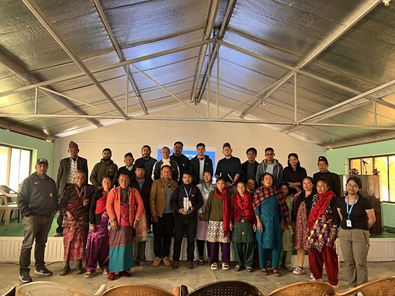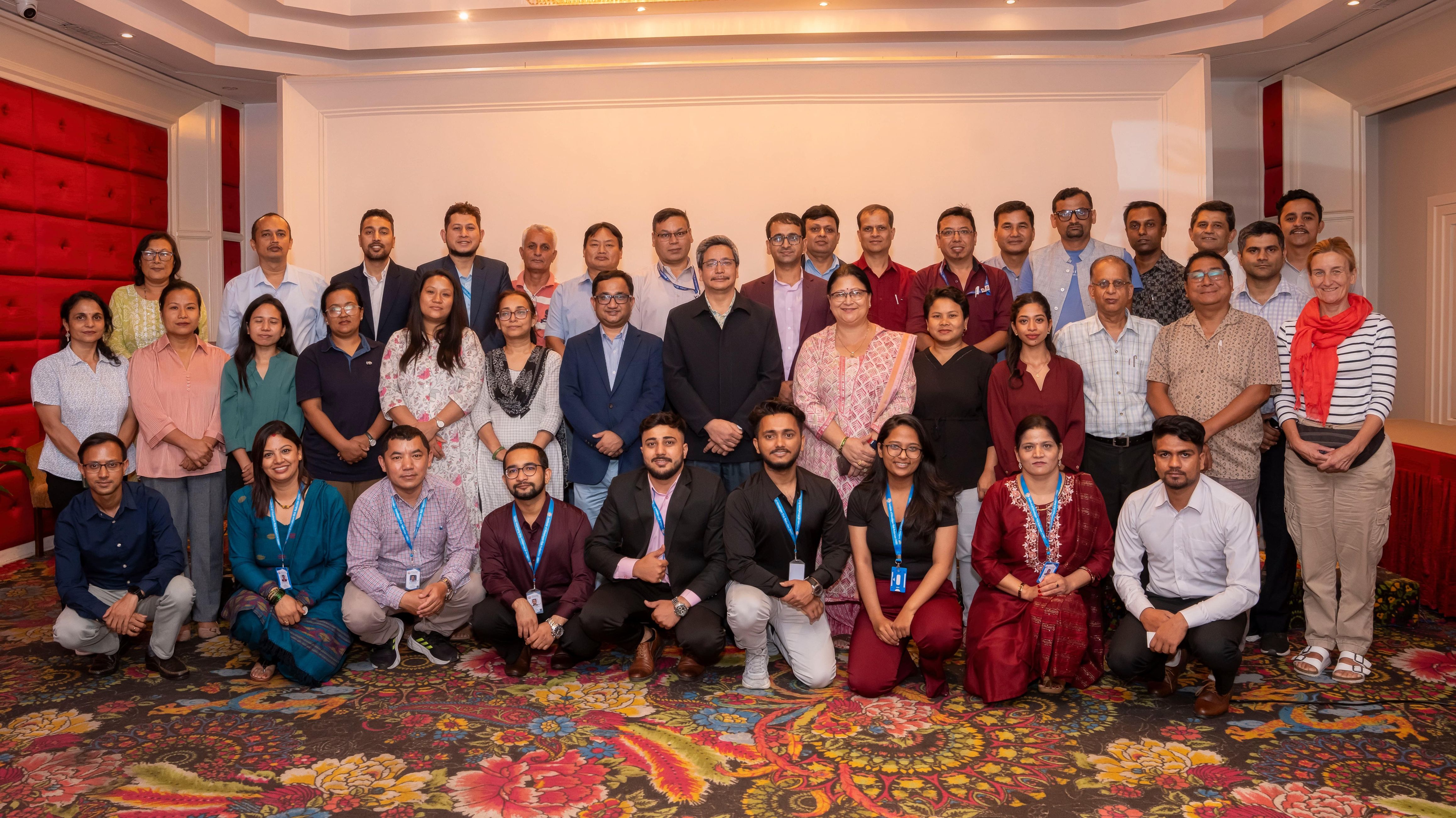Event Report: Koshi River Basin Project Concluding Meeting Report
Introduction:
The Kathmandu Institute of Applied Sciences successfully organized a two-day concluding meeting for the "Enhancing Ecosystem-Based Adaptation to Disaster Risk Reduction in the Himalayan River Basin" project. Held at Hotel Country Villa, Nagarkot, on January 14-15, 2024, the event marked the culmination of a significant collaborative effort led by Dr. Prakash K. Paudel, the Principal Investigator (PI), and funded by the Asia-Pacific Network for Global Change Research.
Collaborators and Attendees:
The meeting saw active participation from esteemed collaborators, including Prof. Rajiv Sinha and Ms. Shobhit Singh from the Indian Institute of Technology Kanpur, Prof. Md. Anwarul Abedin and Dr. Mohammad Golam Kibria from Bangladesh Agriculture University, Mymensingh, Er. Suraj Gautam from the Institute of Himalayan Risk Reduction, and Dr. Basanta Raj Adhikari from the Institute of Engineering, Pulchwok Campus. Dr. Henry Huntington also contributed through online participation. Representatives from various organizations enriched the discussions. In addition to academic perspectives, the meeting welcomed representatives from the Forest Department and TU Social Sciences, further enriching the discourse. Their inclusion underscored the multi-dimensional nature of the challenges faced in the Koshi River Basin. The forest department officers brought insights into environmental conservation and management, while the presence of a TU Social Sciences professors added a socio-cultural lens to the deliberations.
Project Overview:
The focal point of the project was the Koshi River, originating in Tibet and known for frequent floods, particularly during the monsoon season. Dr. Rajiv Sinha from the Department of Earth Sciences highlighted the challenges faced in India, specifically Bihar, where waterlogging and floods were attributed to factors such as the shallowing of water channels, embankment issues, and siltation. Similar issues were echoed by collaborators from Bangladesh and Nepal, emphasizing the need for a holistic approach to disaster management.
Insights from Collaborators:
Dr. Rajiv Sinha provided insights into the issues faced in Bihar, where residents linked waterlogging and floods to the shallowing of water channels, embankment problems, and siltation. Coping mechanisms included flood alarms, mobile notifications, and news dissemination. To address these issues, adaptive measures like bamboo toilets and food storage were implemented, along with community-based practices such as shifting to dry soil and rehabilitation. In Bangladesh, a comprehensive survey involving 380 households, 37 focus groups, and 53 key informants, totaling 1257 people, was conducted. The study focused on diverse flood prediction methods, including meteorological, biological, and hydrological indicators, as well as wind speed, direction, and animal behavior. The survey underscored the importance of acknowledging and incorporating indigenous practices into disaster management policies.Dr. Prakash K. Paudel shared a unique adaptation approach observed in Nepal, specifically in Gobar Gada. Here, residents built temporary houses that could be disassembled and easily relocated to safer areas. Additionally, the selection of fast-growing, flood-resistant vegetables and the prevalence of traditional skills such as swimming and boating highlighted the community's resilience in flood-prone regions.The discussions addressed various challenges, including sedimentation issues in the Indian side of the Koshi basin. Dr. Sinha emphasized the need for collaboration between social and physical scientists to effectively address these challenges. The impact of development-triggered disasters and the migration of communities near riverside areas were also deliberated.
A recurring theme in the discussions was the significant challenge of disseminating information effectively to local communities. It became evident that the major problem faced by people in the region was the lack of capacity development and awareness about disaster prediction, weather forecasting, evacuation procedures, and other critical information. This insight added a layer of urgency to the discussions, emphasizing the need for a holistic approach in dealing with disaster risk reduction.
Recommendations and Future Initiatives:
The collaborative effort resulted in a set of comprehensive recommendations and future initiatives designed to bolster disaster resilience in the Koshi River Basin. Dissemination strategies emerged as a critical aspect, with proposed measures including translating key documents into local languages and creating visually engaging infographic publications. The integration of Ecosystem-Based Adaptation (EBA) into disaster management courses emerged as a strategic move for building community resilience by fostering a deeper understanding of the environment.
Collaboration, both within local communities and with government bodies, was underscored as pivotal for the success of future initiatives. The commitment to ongoing collaboration was not only a testament to the dedication of the researchers but also a recognition of the importance of combining scientific knowledge with local wisdom. Addition to that, online module for indigenous knowledge in disaster risk reduction, was suggested which will seek to bridge traditional wisdom with modern technology. By curating a multimedia-rich repository, featuring real-life case studies, and fostering community engagement, the module will aims to empower individuals in Nepal, India, and Bangladesh with culturally sensitive insights for resilient disaster management. In conclusion, the Koshi River Basin Project Concluding Meeting provided a platform for diverse perspectives, robust discussions, and collaborative solutions. It encapsulated the spirit of shared responsibility in the face of environmental challenges, weaving a narrative of resilience and hope for the future. The event highlighted the importance of integrating traditional knowledge, scientific expertise, and community engagement to build sustainable solutions for the challenges posed by the Koshi River Basin.
